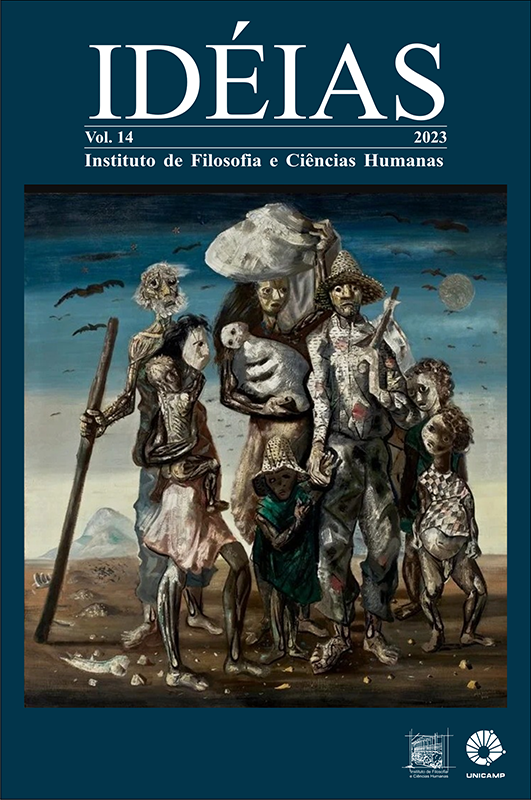Abstract
By privileging the points of view of people on the move from an ethnographic perspective, the article sets out to explore the various wout (routes/roads, in Haitian Creole) undertaken by Haitians, specifically from Brazil. I propose an analysis of the experiences of mobility involved in chache lavi (pursuing life). What are the meanings and practical uses of the category wout? How is the movement of individuals and families articulated in response to the controls imposed by governments and immigration agencies? What strategies are deployed to ensure that the wout of individuals can take place despite the many physical and symbolic impasses? Chache lavi not only creates, constructs, and deconstructs relations between people; it also implies subjective tensions and dimensions, as well as a constant interplay between legal and illegal.
References
ANGLADE, Georges. 1982. Espace et liberté en Haïti. Montreal: ERCE & CRC.
BANQUE MONDIALE. 2017. Rapport sur les migrations et le développement. Available at: http://www.worldbank.org/en/topic/labormarkets/brief/migration-and-remittances. Consulted on: 10 January 2020.
BIEHL, João; LOCKE, Peter. 2017. Unfinished: The Anthropology of Becoming. Durham: Duke University Press.
BOURDIEU, P. 1991. “Introduction à la socioanalyse”. Actes de la recherche en Sciences Sociales, Paris, Vol. 90, p. 3-5, December.
BOURDIEU, P. 2003. “L’objectivation participante”. Actes de la recherche en sciences sociales, Paris, vol. 150, n. 5, pp. 43-58.
CARLING, J. 2001. Aspiration and ability in international migration Cape Verdean experiences of mobility and immobility. Thesis submitted to the Department of Sociology and Human Geography, University of Oslo.
CAVALCANTI, L; TADEU DE OLIVEIRA, A; ARAUJO, D. A. 2016. “Inserção dos imigrantes no mercado de trabalho brasileiro”. Relatório Anual. OBMigra, Brasília. Available at: http://obmigra.mte.gov.br/index.php/relatorio-anual. Consulted on: 13 January 2019.
CHARLES, Jacqueline. 22 sept. 2016. “US shifts Haiti deportation policy and gives a warming.” Miami Herald. Miami. Available at: http://www.miamiherald.com/news/nation-world/world/americas/haiti/article103373227.html. Consulted on: 17 November 2018.
DIÁRIO OFICIAL DA UNIÃO (DOU). 12 novembre 2015, Seção 1, p. 48. Available at: https://www.jusbrasil.com.br/diarios/104076812/dou-secao-1-12-11-2015-pg-48. Consulted on: 17 November 2018.
FALLERS, I. The predicament of the modern African chief: an instance from Uganda. American Anthropologist. 57, 290-305. 1955.
FOUCAULT, M. 2004. Sécurité, territoire, population. Paris: Seuil.
GEERTZ, C. 1960. “The Javanese kijaji: the changing role of a cultural broker”. In: Comparative Studies in Society and History. 2, 228-249.
GLICK-SCHILLER, Nina. 2011. “Locality, Globality and the popularization of a diasporic consciousness: Learning from the Haitian case”. In: JACKSON, R. Geographies of the Haitian Diaspora. New York: Routledge.
GLICK-SCHILLER, Nina; FOURON, G. « Everywhere we go, we are in danger »: Ti Manno and the emergence of a Haitian transnational identity. American Ethnologist. Vol. 17, n. 2, p. 329-347, 1990.
GLUCKMAN, M. ; MITCHELL, J.C. ; BARNES, J.A. 1949. The village headman in British Central Africa. Africa. 19, 89-106.
JOSEPH, Handerson. 2015a. Diáspora: as dinâmicas da mobilidade haitiana no Brasil, no Suriname e na Guiana Francesa. PhD thesis, Museu Nacional, Federal University of Rio de Janeiro.
JOSEPH, Handerson. 2015b. “Diáspora. Sentidos sociais e mobilidades haitianas”. In: Horizontes Antropológicos. Porto Alegre, 21(43).
JOSEPH, Handerson. 2017. “A historicidade da (e)migração internacional haitiana: O Brasil como novo espaço migratório”. In: Périplos: Revista De Estudos Sobre Migrações. Dossiê: Imigração haitiana no Brasil: Estado das Artes. Brasilia, 1(1): 07-26.
MA MUNG, E. La dispersion comme ressource. Cultures et Conflits, Paris, n. 33-34, p. 89-103, 1999.
MINISTÉRIO DO TRABALHO E EMPREGO (MTE). Resolução Normativa n. 97, 12 janvier 2012. Diário Oficial da União, 13/01/2012, Section 1, p. 19 : “dispõe sobre a concessão do visto permanente previsto no art. 16 da Lei no 6.815, de 19 de agosto de 1980, a nacionais do Haiti.”
RICHMANN, Karen E. 2005. Migration and voodoo. Florida: University Press of Florida.
SANDOVAL GARCIA, C. Casa en Tierra Ajena. Reportagem 2017. Available at: https://www.youtube.com/watch?v=AkrZIumTRjI&fbclid=IwAR377JOnVTqlIraDeT4yhbGgToljPplXwc5cbk7-E9wxv9ZlOwXhX3iMlHY
VIEIRA, Rosa. 2014. Itinerâncias e governo : a mobilidade haitiana no Brasil. Master’s dissertation in Sociology and Anthropology, Federal University of Rio de Janeiro.
VIEIRA, Rosa. 2017. “O governo da mobilidade haitiana no Brasil”. In: Mana Estudos de Antropologia Social, Rio de Janeiro, 23(1): 229-254.
WOLF, E. 1956. “Aspects of Group Relations in a Complex Society: Mexico”. In: American Anthropologist. 58, 1065-1078.
ZOLBERG, Aristide; SUHRKE, Astri; AGUAYO, Sergio. 1989. Escape from violence: Conflict and the refugee crisis in the developing world. Oxford: Oxford University Press.

This work is licensed under a Creative Commons Attribution-NonCommercial-ShareAlike 4.0 International License.
Copyright (c) 2023 Ideias


